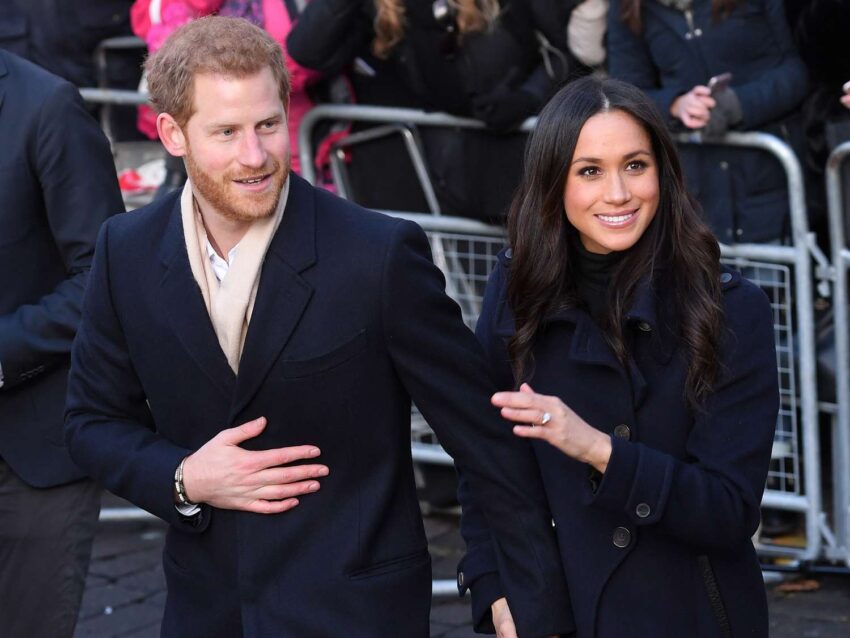In a world where the media wields immense influence, the treatment of public figures often reveals deeper societal issues.
Recently, a passionate discussion unfolded on LBC’s Nick Ferrari show regarding the relentless scrutiny faced by Meghan Markle.
This conversation, sparked by a caller named Clive, highlighted not just Meghan’s plight but the broader implications of media bias and its impact on public perception.
Clive’s call was filled with frustration as he addressed the media’s disproportionate negativity towards Meghan.
He argued that while many in Scotland might be indifferent to the monarchy, the treatment of Markle transcends royal gossip.
Instead, it reflects a troubling narrative shaped by bias, particularly against a woman of color who dared to challenge convention.
Clive’s voice resonated in a landscape often dominated by sensationalism, reminding listeners of the human cost behind the headlines.
From the moment Meghan entered the royal family, she became a focal point for intense scrutiny.
Every outfit she wore and every word she spoke were dissected by the media.
In contrast, her sister-in-law Kate Middleton received a different kind of coverage—one that celebrated her fashion choices and portrayed her as the epitome of royal grace.
This glaring double standard raises questions about societal biases and the media’s role in perpetuating them.
The disparity in treatment between Meghan and Kate is not just anecdotal; it points to implicit biases that shape our perceptions.
These biases, often unconscious, manifest in the way stories are told and images are chosen.
A less flattering photo of Meghan or harsher language in articles about her can significantly alter public perception, painting her as difficult or demanding without just cause.
This cycle of negativity is self-perpetuating.
Each negative story about Meghan generates more clicks and views, prompting outlets to double down on sensational headlines.
The result?
A toxic environment where dissent and challenge are met with hostility.
It’s a vicious loop that not only harms Meghan but also discourages others from speaking out against injustice.
Addressing this issue requires a commitment from media outlets to prioritize fairness over sensationalism.
It’s essential to challenge biases and amplify diverse voices, ensuring that narratives are not solely defined by those in power.
The media’s responsibility extends beyond reporting; it shapes how society views individuals, particularly those like Meghan who dare to step outside traditional boundaries.
Moreover, social media exacerbates these issues.
Algorithms often trap users in echo chambers, reinforcing existing beliefs and biases.
Negative narratives gain traction, further entrenching misinformation.
To combat this, consumers must seek diverse perspectives and critically evaluate the information presented to them.
The toll of constant scrutiny is profound.
Meghan has openly discussed the mental health impacts of relentless media attention, which can lead to feelings of isolation and fear.
This highlights the urgent need for ethical journalism that respects the privacy and dignity of individuals, prioritizing accuracy over sensationalism.
The media plays a crucial role in democracy, holding power accountable and providing a platform for diverse voices.
However, when profit becomes the primary motive, ethical standards often take a backseat.
The treatment of Meghan Markle serves as a stark reminder of the urgent need for accountability within the media industry.
One effective way to combat media bias is by diversifying newsrooms.
When the voices shaping narratives reflect a broader spectrum of society, we are more likely to see fair representation.
Increasing diversity isn’t just about meeting quotas; it’s about enriching the storytelling process and ensuring that all experiences are accurately represented.
Ultimately, the media has the power to inspire and inform, but it also has the potential to perpetuate harm.
The ongoing scrutiny of Meghan Markle underscores the necessity for journalists and editors to reflect on their practices and strive for a more equitable approach to reporting.
By holding themselves accountable and prioritizing ethical standards, the media can begin to mend the fractures caused by bias and sensationalism.
